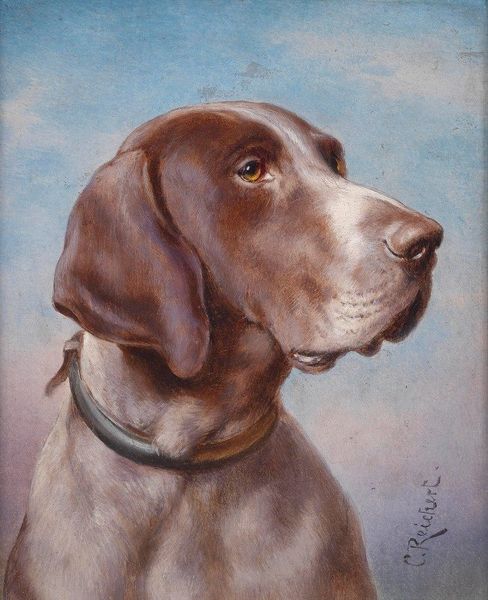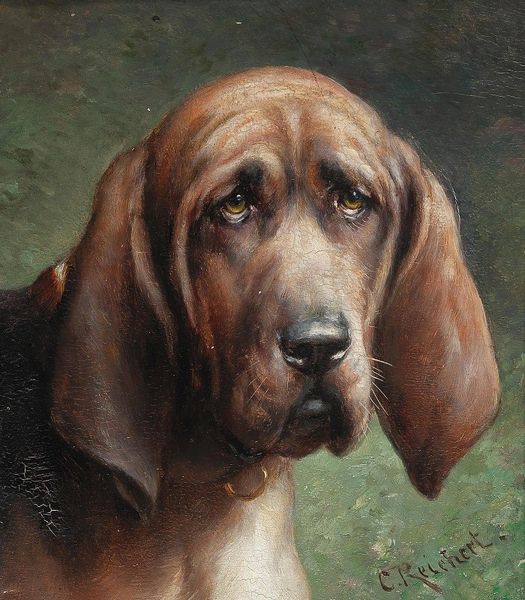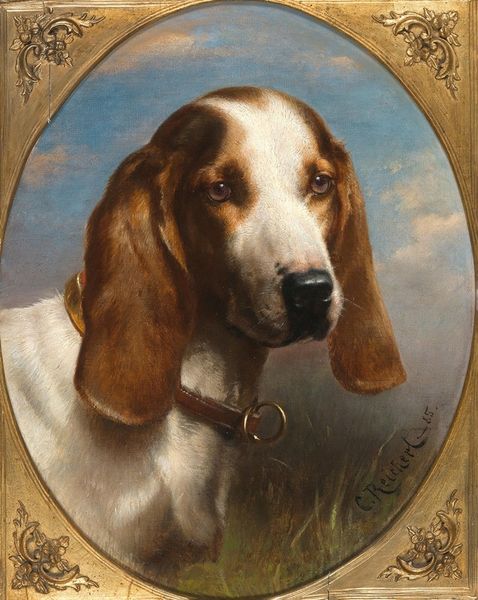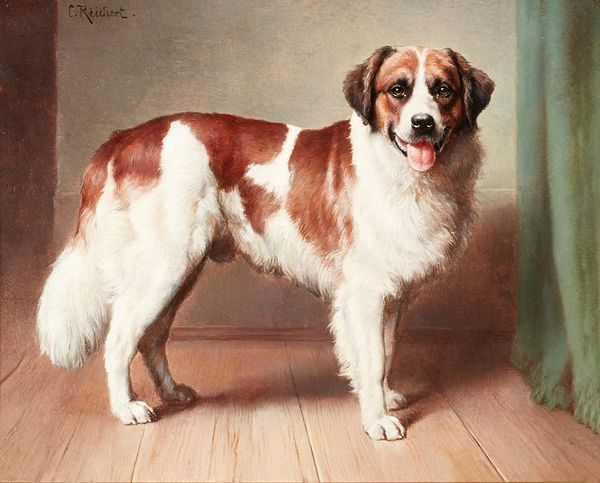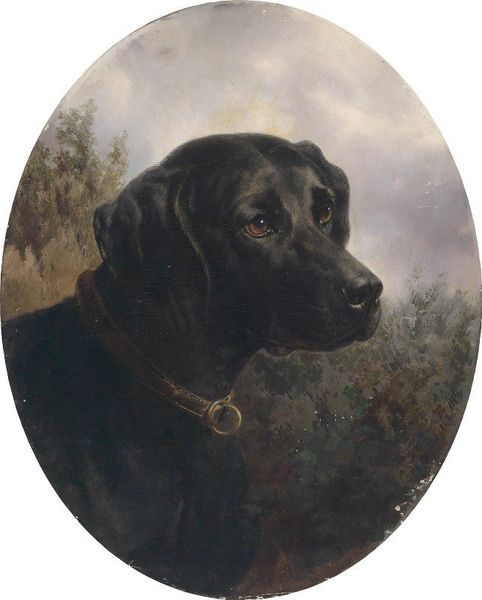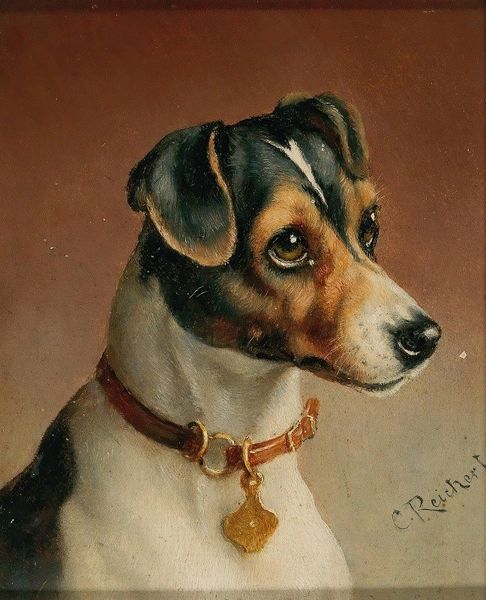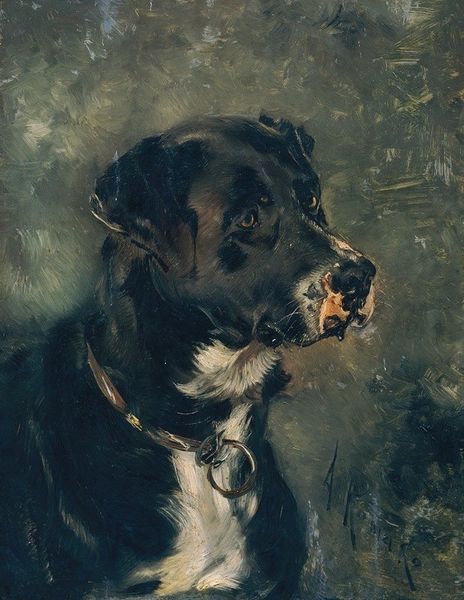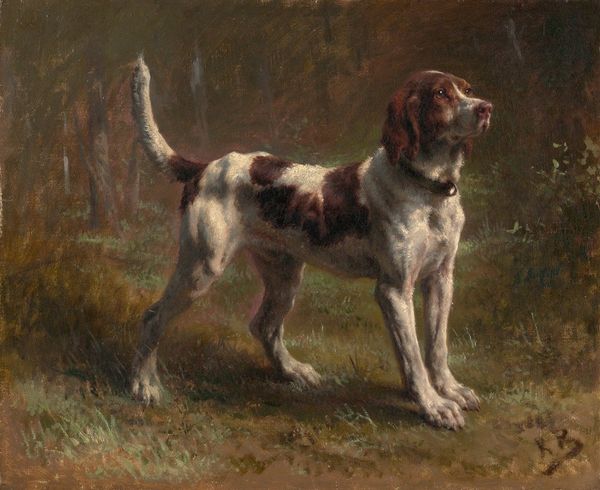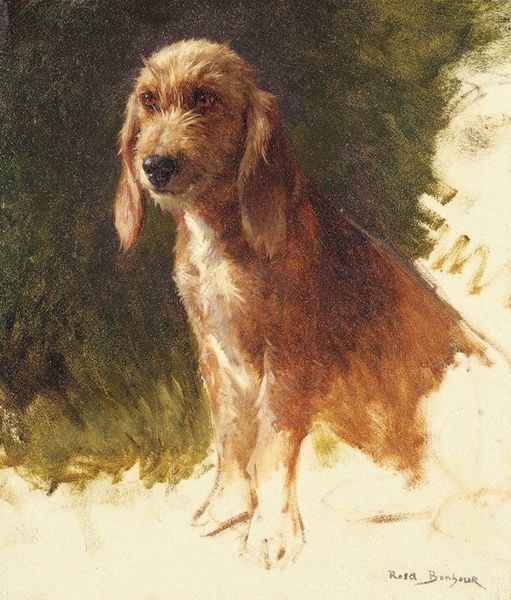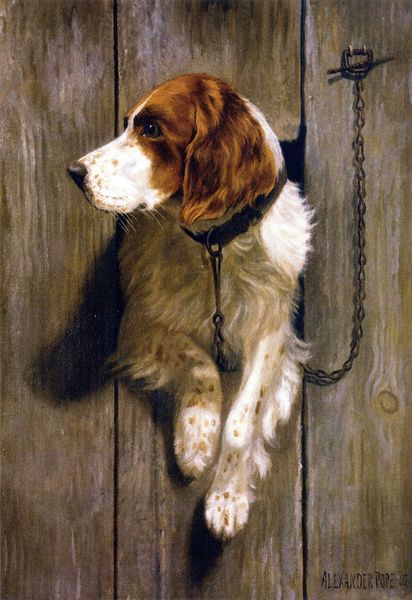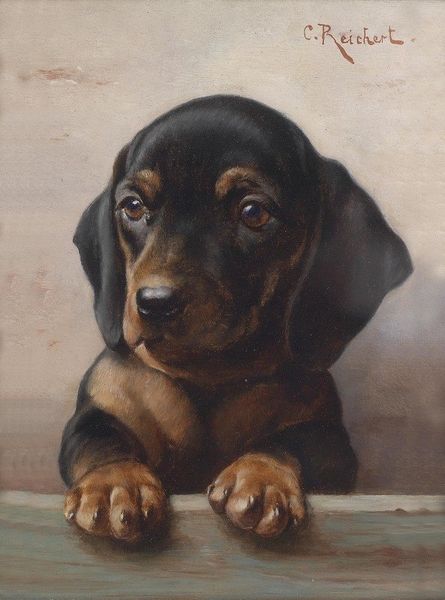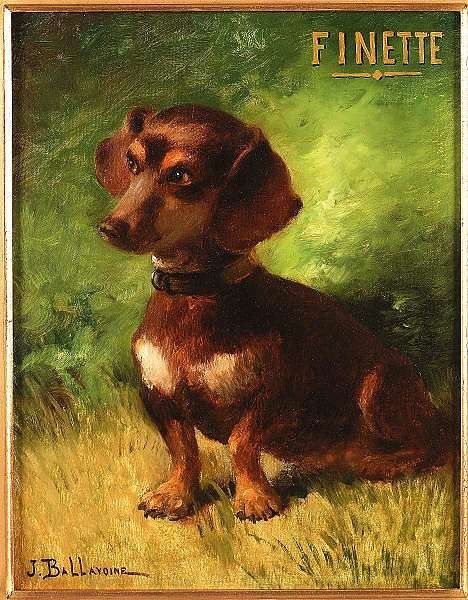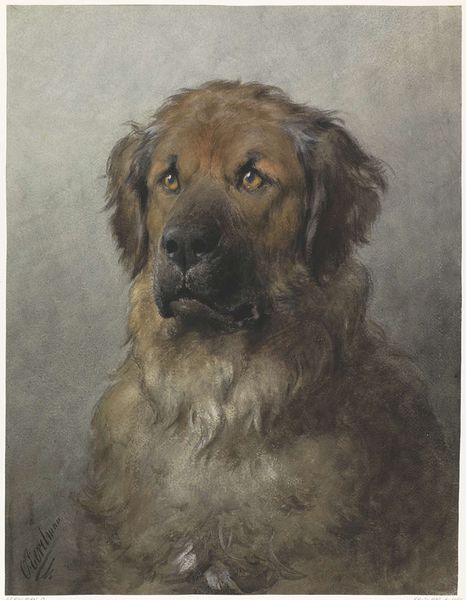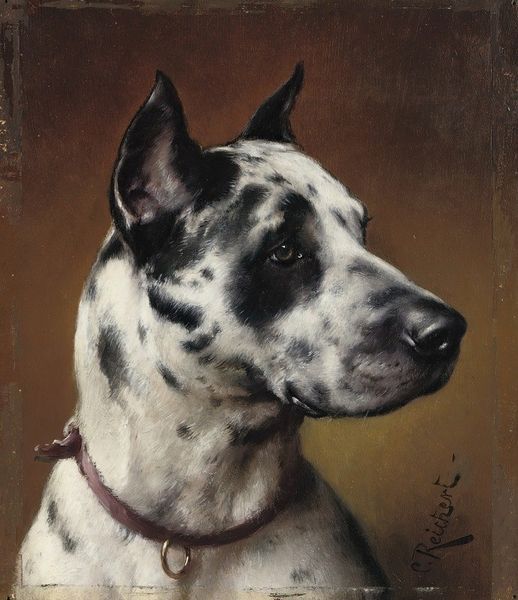
oil-paint
#
portrait
#
animal
#
oil-paint
#
charcoal drawing
#
oil painting
#
portrait head and shoulder
#
green background
#
animal portrait
#
facial portrait
#
realism
Copyright: Public Domain: Artvee
Curator: Let's turn our attention to this delightful oil painting entitled "Head of a German Shorthaired Pointer," signed by Carl Reichert. What strikes you about it initially? Editor: It has a calming, almost solemn feel, doesn't it? The dog's gaze is so steady, and the muted greens of the background deepen that sense of quiet contemplation. There's also something very old-world about the coloration of the fur, with its blended shades of brown. Curator: Absolutely. I think that Reichert really taps into the traditional portraiture of the era, and there's something intriguing in this visual language, especially in its ability to convey human concepts through animal representation. Dogs are such loaded figures, so how does the artist speak to control and freedom in this setting? Editor: Well, immediately, the collar stands out. It's simple but also such a loaded symbol. This breed of dog would have traditionally been employed in hunting roles, but that black collar certainly marks him as domestic. How do you see the role of dogs during this period being signified here? Curator: A fantastic point. Historically, in art, dogs appear to be the symbols of fidelity and aristocratic status. Given that we understand dogs within this history of allegiance to specific masters and institutions, could we read into the work a visual shorthand for service and, to that extent, also oppression? Editor: It’s compelling to think of this domestic image within that power structure. What I also find noteworthy is the contrast between the softness of the fur and the stiffness of that very same collar. I almost feel an empathetic tension. It begs questions of loyalty and the weight of social constraints, especially in how animals carry these implications. Curator: The painting really draws on the established cultural expectations we bring to our interactions with the animal kingdom, and in that moment, we have an instance of questioning our perceived power. Editor: It certainly urges us to consider those ingrained presumptions, which linger on still to this day. Thank you for making that accessible for our visitors. Curator: And thank you for drawing attention to that element of psychological complexity and social responsibility.
Comments
No comments
Be the first to comment and join the conversation on the ultimate creative platform.
